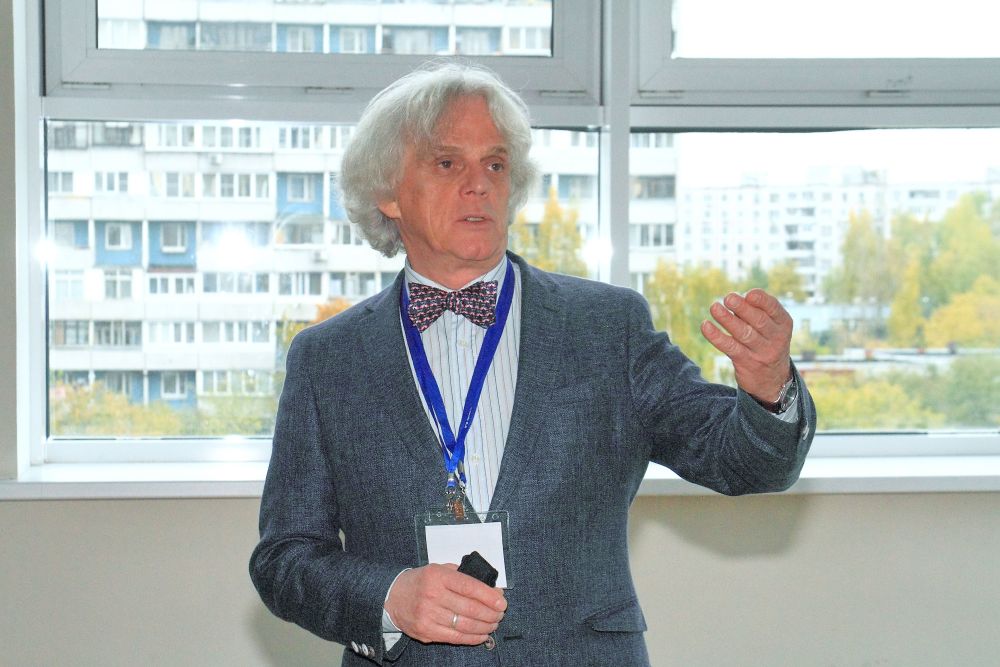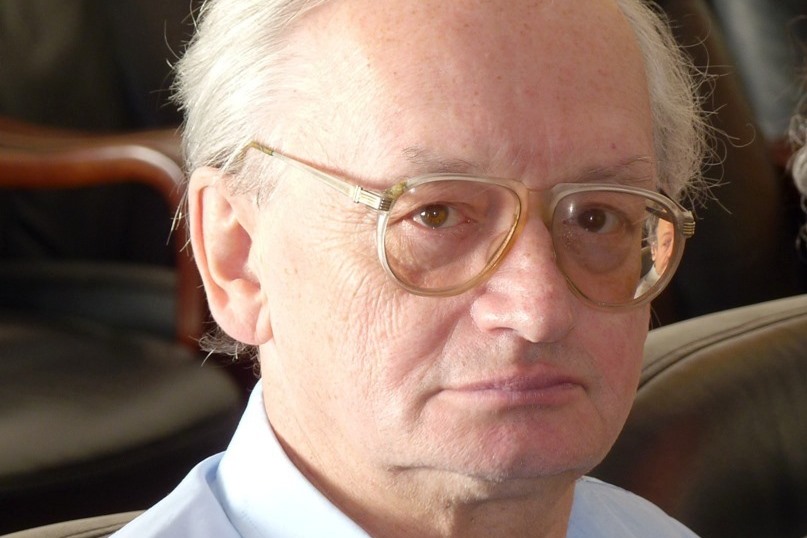Freshmen Team from HSE Faculty of Physics Came Third at National Theoretical Mechanics Competition
From November 20th – 24th, 2017, the National Theoretical Mechanics Competition took place at the Kazan State Power Engineering University, attracting 120 students from 35 Russian universities.

HSE MIEM Professor Elected Fellow of American Physical Society
The American Physical Society (APS) has recognised HSE MIEM Professor Lev Shchur for his innovative use of computer simulations and the development of superior random number generators for their use in statistical physics. Professor Shchur is the only academic working in Russia to be selected as APS Fellow in 2017.
First Enrollment at HSE Faculty of Physics
This year the first enrollment was held at HSE Faculty of Physics: since September 26 bachelor’s and 14 master’s students will start their studies at the faculty. They received student ID cards as well as promises to study in creative atmosphere with assistance.
HSE Physics Students to Help Create Map of Universe
The Higher School of Economics is welcoming its first class of students to the Faculty of Physics. The new faculty is unique in that it fosters a close relationship between education and science. At the Space Research Institute, for instance, future master’s students will create devices to study space plasma, analyse data from satellites, and learn to determine space weather.

Alexei Starobinsky, Professor in Faculty of Physics, Elected Foreign Associate at U.S. National Academy of Sciences
Alexei Starobinsky, Professor in the HSE Faculty of Physics, has been elected Foreign Associate at the U.S. National Academy of Sciences. Previously, he has served as an elected member of the National Academy of Sciences of Germany (Leopoldina), the Norwegian Academy of Science and Letters, and two Indian academies – the Indian National Science Academy (New Delhi) and the National Academy of Sciences (Allahabad).
CERN Workshop at the HSE Faculty of Computer Science
Thirty school students from Moscow and the Moscow Region recently had an opportunity to meet international researchers and analyze data obtained from the Large Hadron Collider at a workshop organized by HSE’s Faculty of Computer Science, Yandex and CERN.
.jpg)
HSE Experts Investigate How Order Emerges From Chaos
Igor Kolokolov and Vladimir Lebedev, scientific experts from HSE’s Faculty of Physics and the Landau Institute for Theoretical Physics of Russian Academy of Sciences, have developed an analytical theory, which binds the structure of coherent vortices formed due to inverse cascades in 2-D turbulence with the statistical properties of hydrodynamic fluctuations. Uncovering this link can be useful in identifying the causes of the particular characteristics of such atmospheric phenomena as cyclones and anticyclones. Their research is presented in an article published in the ‘Journal of Fluid Mechanics’.
New Master’s Programme in Quantum Information Technologies Opening at HSE MIEM
Konstantin Arutyunov, Professor at the School of Electronic Engineering of HSE Tikhonov Moscow Institute of Electronics and Mathematics, discusses what the new programme offers its students and why the future lies with quantum technologies.
-%D1%84%D0%B8%D0%B7%D0%B8%D0%BA%D0%B05.jpg)
Sociologists Outlined Institutional Landscape of Russian Physics
Social scientists from National Research University Higher School of Economics (NRU HSE) measured scientific capital of 39 physics institutions of Russian Academy of Sciences (RAS). More detailed information about research results can be found in the journal Scientometrics.
Faculty of Physics Opens at HSE
Students at HSE will be able to enroll in undergraduate and Master’s programmes in Physics, starting in 2017. Furthermore, including those working on doctorates, students will also be able to carry out research not only at HSE laboratories, but also several leading institutes of the Russian Academy of Sciences (RAS), which are launching joint departments with our new faculty.

